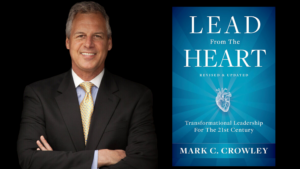Welcome to Episode 97 of the Built on Purpose Podcast, brought to you by Y Scouts. On this episode, Max Hansen interviews Tom Kelly, the founder of Charity Auctions Today and the Co-Founder of CompCorePro. Tom Kelly is a dynamic entrepreneur and consultant known for his innovative approaches to reducing costs and enhancing efficiency…
Read MoreWelcome to Episode 96 of the Built on Purpose Podcast, brought to you by Y Scouts. On this episode, Max Hansen interviews Dr. Patty Ann Tublin, the CEO and Founder of Relationship Toolbox LLC. Dr. Patty Ann is a human behavior, motivation, and performance expert, specializing in the development of emotional intelligence and communication…
Read MoreWelcome to Episode 95 of the Built on Purpose Podcast, brought to you by Y Scouts. On this episode, Max Hansen interviews Alastair Sanderson. Alister Sanderson is the CEO of Operio Group, a transformative enterprise specializing in comprehensive solutions for the food, beverage, nutraceutical, and pharmaceutical manufacturing industries. Since its inception in 2022,…
Read MoreWelcome to Episode 94 of the Built on Purpose Podcast, brought to you by Y Scouts. On this episode, Max Hansen interviews Sherry Rais. Sherry Rais is a visionary entrepreneur dedicated to revolutionizing mental healthcare in the workplace. She is the Co-founder and CEO of Enthea, a mental health company dedicated to integrating…
Read MoreWelcome to Episode 93 of the Built on Purpose Podcast, brought to you by Y Scouts. On this episode, Max Hansen interviews Alex Kirby. Alex Kirby is the CEO of Total Family Management (TFM), a company dedicated to improving family dynamics by offering private family coaching services. Through TFM, he aims to enhance…
Read MoreLearn Radical Candor from the expert herself. Kim Scott coined the groundbreaking leadership philosophy of “caring personally while challenging directly.” After honing her approach at Google, Apple, and other tech giants, Kim wrote the bestselling book Radical Candor to share her proven framework for transforming company culture. In this episode, Kim dives deep into the…
Read MoreMark C. Crowley is the author of “Lead From The Heart: Transformational Leadership For The 21st Century,” and his mission is to fundamentally change how we lead people in workplaces around the globe. Mark is a regular columnist for Fast Company Magazine and has been published in USA Today, Reuters, Forbes, the Stanford Social Innovation…
Read MoreFinding and hiring the right leader for your company is one of the most important decisions any organization can make. The leader sets the vision, culture, and trajectory of the company. A mis-hire in the leadership role can lead to confusion, low morale, and lack of progress. Luckily, the book “Traction” by Gino Wickman provides…
Read MoreHaving hard conversations is one of the most difficult parts of being a leader. But it’s also one of the most important parts of your role. We’ve never met someone who enjoys addressing a problem employee, putting someone on a PIP, or even needing to let someone go. None of that is fun. But there…
Read MoreCutting your losses… Hiring a new executive is a significant investment for any organization, both in terms of time and resources. However, despite the rigorous selection process and high hopes, there are instances when it becomes evident that the newly hired executive may not be the right fit for your company’s needs. Recognizing the need…
Read More









